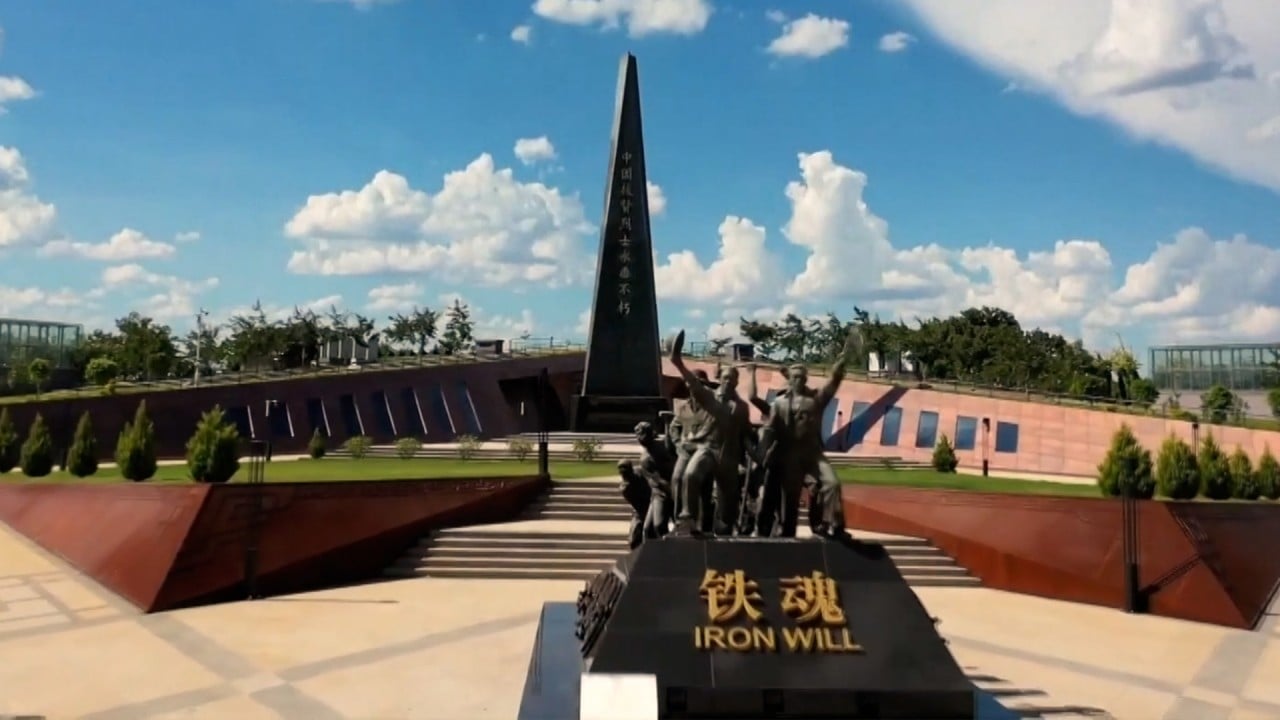
Uganda asks China to go further in opening up its market for African products
- Yoweri Museveni builds on previous calls for more Chinese imports of value-added goods in Kampala meeting with Vice-Premier Liu Guozhong
- The Ugandan leader said his country is happy with China’s support and recalled its history of engaging with Africa
Museveni pointed to China’s decades of support for Uganda, saying “we are happy both with their actions and how they conduct themselves”, according to a Ugandan readout of last week’s meeting released at the weekend.
“Now, what we need to emphasise is market access. China should open its market to African products, which will benefit Africa and result in a win-win situation for both parties, given that Africa already imports a lot from China,” Museveni said.
He stressed that by buying each other’s goods, nations could foster prosperity and strengthen their economic ties for mutual benefit.
“If you support what I produce, you are supporting my prosperity and when I buy what you produce, I am supporting your prosperity. So China should open their markets to African products, it is a very easy way to help one another for mutual benefit.”
China-Africa trade recovers from Covid slump to hit record US$282 billion
In his response, Liu said China’s efforts to foster greater trade collaboration had led to 98 per cent of taxable items from the East African country being subject to zero tariffs in China.
“We are very happy to see that more Ugandan products are entering the Chinese market and during my visit here, I have seen that there are many potentials that can be tapped based on Uganda’s natural conditions,” Liu said.
According to the readout, Liu also addressed concerns that China has been promoting an unhealthy trade balance by exporting finished products to the continent in exchange for mostly raw materials.
“I think with our joint efforts, we can open our markets bigger and in international trade. China never literally seeks a trade surplus; meaning we just don’t sell without buying from others,” he said.
Museveni has made several requests for China to open up its market to more than Africa’s raw materials, including at a meeting in November with a delegation from the National People’s Congress, led by Standing Committee deputy chairman Luosang Jiangcun.
With US making ‘game changing’ moves, China steps up African economic ties
“I would like to encourage China to open their market more for processed coffee and other products, not only raw materials,” Museveni said in November.
“When I last checked, China had opened up its market for 400 products to enter their country without tax or limit. That is very important because somebody buying what you produce is actual support,” he said.
“One of the problems in Africa has been the export of raw materials, because … the income is not only much lower, but you also lose jobs. It is important for China and Africa to trade in finished products more.”
China has been addressing the issue, with about two dozen African nations benefiting over the past two years from Beijing’s decision to allow “least-developed countries” in Africa to export some of their products duty-free.
China on course for Africa trade boost, as duty-free access list grows
On the sidelines of the Brics summit in Johannesburg in August, President Xi Jinping promised to help African countries produce more food products and set up industries to process them as part of efforts to reverse the trade imbalance.
And in 2021, at the Forum on China–Africa Cooperation in the Senegalese capital Dakar, Xi promised to open “green lanes” for African agricultural exports, expand the range of products covered by zero-tariff treatment and speed up border processing.
As Uganda’s relations with the West, especially the US, have deteriorated, Kampala is increasingly relying on China and other countries for trade and as a source of capital to fund infrastructure.
After Uganda last year passed its controversial Anti-Homosexuality Act – imposing harsher penalties, including death, for same-sex conduct – the US imposed sanctions on some Ugandan officials.
Uganda chases China after human rights issues see Western lenders leave
Washington also struck Uganda from its African Growth and Opportunity Act, the programme that allows many of the continent’s countries to export certain commodities to the US duty-free.
In his meeting with Museveni, Liu said Beijing would support Uganda’s national development and continue to provide medical aid and other assistance, from cultural exchanges and youth programmes, to educational opportunities in China for Ugandan students.
According to the readout, Museveni recalled China’s support during the continent’s anti-colonial struggle and highlighted its crucial role in bolstering Africa’s economic development since the early days of independence.
“We have been together in the anti-colonial struggle. China supported us when we were fighting for independence, it also supported the freedom fighting groups in Southern Africa – Mozambique, Zimbabwe and South Africa – then the ones who were in political struggles.”
Museveni also praised China’s economic support for Africa in the 1960s and 1970s, in particular when it stepped in after the West declined to fund an ambitious plan to link Zambia’s copper belt and the Tanzanian port of Dar es Salaam on the Indian Ocean.
The 1,860km (1,155-mile) Tazara railway cost about a billion yuan – billions of US dollars in today’s money – and remains China’s biggest overseas project. But at the time, the Chinese economy was still small and China was facing its own financial difficulties, Museveni noted.
“Since then, China has grown economically [and] has helped Africa even more. We are therefore very happy with China and we don’t agree with the shallow-minded views,” he said.
Liu responded that China was still a very poor country in 1949 when the People’s Republic was founded, “but the Chinese leaders made a very important decision” to develop relations with Africa through “supporting African people in fighting for national independence, liberation and their efforts to fight imperialism”.


